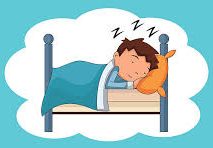Writer Will Follow Sleep Advice In Feb. and March

With the first semester of the year coming to a close, most of us are starting to feel a bit worn down. Waking up at 5:00 in the morning is no easy task, so I went to look into how to improve the quality and and quantity of your sleep.
And because I don’t want to leave y’all hanging, I will actually be following the following steps through the two months of February and March and I’ll be letting ya’ll know how it goes.
- Stick to a sleep schedule (Even during the weekends)
According to the National Sleep Foundation, going to sleep the same time every night is a great way to regulate your body’s internal clock, and you’ll notice that you’ll start to get tired the same time every day. This also helps you go to sleep and fall asleep. (Note that it is important to wake up at the same time every day as well)
- Create a relaxing bedtime ritual
Also from the National Sleep Foundation, it helps to carve out even just 45 minutes out of your nighttime schedule to do something relaxing before you go to sleep. Examples could be anything from reading, taking a bath, or even doing something crafty like knitting. (It’s important to note that at this point it is beneficial to stay away from bright lights, witch will convince your body it’s still daytime and hinder your sleep. As for technology use, it’s best to stay away from screens for an hour before going to sleep.
- Pay Attention to your diet
The MAYO clinic states that you should avoid heavy or large meals before you go to sleep. Make sure you are not going to bed hungry. Your discomfort may possibly keep you up. Also make sure to avoid nicotine, caffeine, or alcohol before bed. The substances can make it harder for you to get a quality sleep. Even if alcohol makes you feel tired at first, it can disturb your sleep later in the night.
- Exercise Daily
According to the National Sleep Foundation (and the MAYO clinic) *exercising regularly is a great way to promote good sleep, as long as you are not doing so around the time you are going to sleep. (Spending time outside is good too)
- Manage Stress (To the best of your ability)
Make sure your caught up on your homework and school assignments (Again, to the best of your ability. None of us are perfect) The MAYO clinic says, “Start with the basics, such as getting organized, setting priorities and delegating tasks.” A simple way to do this is to write down what’s bothering you that night and keep it somewhere for tomorrow. Meditation is also a great way to manage anxiety.
- Only use bed for sleep
According to Harvard University, if you are experiences a hard time falling asleep, it is best to, after 20 minutes of unsuccessful sleep, to get up and do something relaxing. This can be as simple as listening to music or reading a book. According to the veteranshealthlibrary, “When you spend a lot of time in bed awake and frustrated, your body may start to link bed with being awake and frustrated. Chronic insomnia develops as a result of this negative association.”
- Avoid Naps
According to both Harvard and the National Sleep Foundation, and Harvard University, Napping is a great way to ruin your sleep cycle. Napping can easily keep you from being tired enough to sleep when you want to. This reinforces the idea that it is important to keep and regulated sleep schedule.
- Create a restful environment
Both the MAYO clinic and Harvard University agree that it is best if the technologic devices stay out of the bedroom. An idea bedroom is dark, cool, quiet, and contains minimal clutter. Try to convince your body that this is a room for sleeping.
- Expose yourself to light in the MORNING
A lt of your brain in controlled by light, so exposing yourself to bright lights when you wake up is a great way to trick your brain into thinking that when you wake up at 5 in the morning, that it is actually morning and you should stay awake. Going for walks in the morning is also a great way to wake up.
- Make a commitment to sleeping better
None of the previously mentioned tips will help if you don’t do them regularly. The Birgham Health Hub says that telling a parent of friend you are trying to improve your sleeping schedule, chances are you’ll stick with it longer.
*Here are a few (Mostly free) apps that can get you started exercising
-
- Workout for Women (As implied by the title, geared towards women. Lets you focus of parts of your body you would like to improve. Allows you to track weight loss and gives reminders)
- 7M Workout Similar to Workout for women. The app specialises in shorter workout times.
- Workouts Another app with a blue woman running in place on the cover. The app specialised in working out certain parts of your body.

Marissa Bennett is a sophomore at CHS. While she has been doing journalism for two years, she enjoys many different styles of writing as well. Outside...





